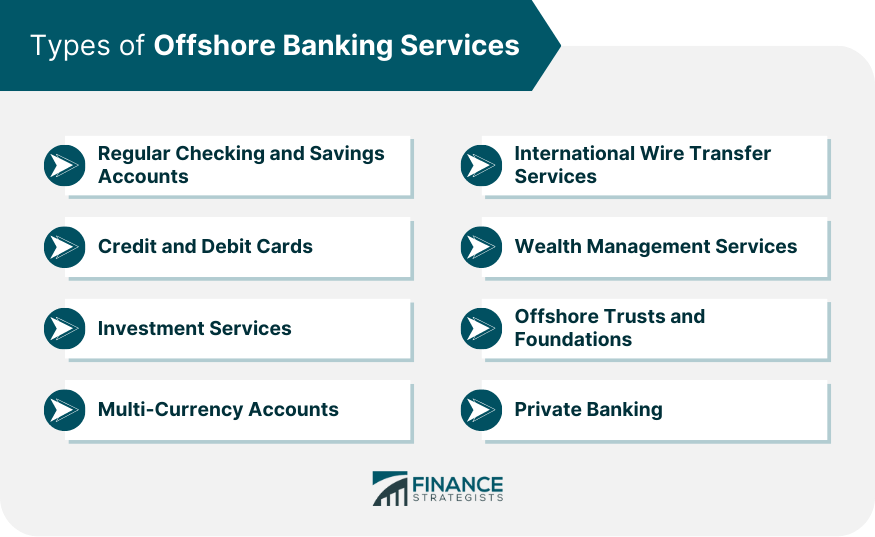How Offshore Firm Formations Work: A Detailed Introduction for Entrepreneurs
Offshore company formations can provide significant benefits for business owners seeking tax optimization and property defense. The process involves several essential actions, beginning with mindful territory choice and complete paperwork prep work. Engaging professional services is essential for compliance. However, many ignore the ongoing obligations that follow first enrollment. Recognizing these intricacies can make a significant distinction in leveraging offshore opportunities successfully. The next steps are necessary for long-lasting success.
Understanding Offshore Business: What They Are and Why They Issue
The concept of offshore firms might appear complicated, recognizing their essential nature and significance is vital for both individuals and companies seeking to optimize their monetary approaches. Offshore companies are entities registered outside the person's country of residence, commonly in jurisdictions that supply favorable regulatory atmospheres. These companies can supply numerous benefits, such as tax obligation optimization, asset protection, and boosted personal privacy.
For entrepreneurs, developing an overseas company can facilitate worldwide profession, minimize functional costs, and increase market reach. Furthermore, offshore companies typically allow for streamlined compliance with worldwide laws. Individuals may also utilize offshore frameworks to protect personal possessions from political or economic instability in their home nations. Ultimately, the appeal of overseas business lies in their capability to improve financial flexibility and provide tactical benefits in an increasingly interconnected global economic climate - Offshore Company Formations. Recognizing their functional structure and benefits is crucial for making informed choices
Choosing the Right Jurisdiction for Your Offshore Company
Choosing the appropriate territory for an overseas company is crucial for maximizing tax advantages and guaranteeing conformity with regional laws. Various jurisdictions offer varying tax obligation motivations and regulatory settings that can considerably affect business operations. As a result, a careful analysis of these factors is crucial for informed decision-making.
Tax Obligation Advantages Summary
When considering the establishment of an overseas business, recognizing the tax advantages associated with different jurisdictions is essential. Different areas use unique benefits, such as reduced or no business tax prices, which can greatly enhance profitability. Some territories offer tax motivations for details kinds of companies, drawing in entrepreneurs looking for minimized tax obligation liabilities. Furthermore, particular nations implement beneficial tax treaties that lessen dual taxation on worldwide earnings, ensuring that companies maintain more revenues. The choice of jurisdiction likewise affects value-added tax obligation (BARREL) and various other neighborhood taxes. Entrepreneurs need to evaluate these factors very carefully to pick a place that lines up with their service objectives, optimizing tax effectiveness while staying compliant with global regulations.
Regulatory Setting Considerations
Picking the right jurisdiction for an offshore company calls for an extensive understanding of the regulatory environment, as various countries enforce differing degrees of conformity and governance. Business owners should review aspects such as lawful frameworks, tax obligation laws, and reporting commitments. Territories like the British Virgin Islands and Cayman Islands are often favored for their business-friendly regulations and very little coverage needs. On the other hand, some nations may impose stringent guidelines that can complicate procedures and increase prices. Furthermore, the political security and track record of a jurisdiction can impact the lasting feasibility of the offshore company. Mindful consideration of these governing facets is vital to guarantee that the selected territory straightens with the business's operational demands and critical objectives.
Functional Preparing the Needed Documentation
Preparing the needed paperwork is an essential action in the overseas company formation procedure. Entrepreneurs must collect different lawful and identification records to promote their company's establishment in a foreign jurisdiction. Generally, this consists of a detailed company plan detailing the business's goals and functional strategies. In addition, individual identification papers, such as tickets or vehicle driver's licenses, are called for from the company's supervisors and investors.
Oftentimes, proof of address, like energy bills or bank statements, is necessary to verify the identifications of the involved parties. Furthermore, certain forms dictated by the jurisdiction, including application kinds for enrollment, have to be completed properly. Some territories might also require an affirmation of the nature of service tasks and conformity with regional regulations. Extensively preparing these files assures a smoother registration process and aids mitigate potential delays or problems, inevitably setting a strong structure for the overseas entity.
Involving Specialist Solutions for Offshore Development
Engaging specialist services in offshore development can considerably improve the effectiveness and efficiency of the process. Entrepreneurs usually encounter complexities that can be frustrating, making expert advice very useful. Expert companies focusing on overseas formations give a riches of expertise regarding jurisdiction choice, company framework, and local market conditions.
These experts can aid in preparing essential documents, making certain precision and compliance with certain requirements. They additionally assist streamline communication with local authorities, decreasing the probability of delays or misconceptions. On top of that, specialist services can offer insights right into strategic advantages, such as tax obligation advantages and asset protection, customized to the business owner's specific needs.
Navigating Regulatory Compliance and Legal Demands
Recognizing the regulative landscape is important for business owners starting on overseas business developments. Conformity with global guidelines and regional regulations is essential to prevent legal mistakes. Each jurisdiction has specific needs concerning firm enrollment, reporting, and tax, which must be extensively researched.
Business owners should acquaint themselves with the regulations governing corporate structure, possession, and operational methods in the picked offshore place. Furthermore, anti-money laundering (AML) and understand your consumer (KYC) laws frequently apply, requiring appropriate documentation and verification processes.
Involving with lawyers that focus on offshore solutions can give very useful support on navigating via these intricacies. Ensuring conformity not only protects the company from prospective lawful issues but likewise enhances credibility with companions, capitalists, and regulators. By sticking to the recommended lawful structures, business owners can effectively take advantage of the advantages of offshore firm formations while minimizing risks connected with non-compliance.
Establishing Banking and Financial Accounts

When an appropriate bank is identified, business owners generally need to prepare and submit numerous documents, consisting of proof of identity, company registration documents, and a summary of the intended company tasks. (Offshore Company Formations)
Some financial institutions may also need a minimum deposit to open an account. Entrepreneurs must be prepared to respond to questions regarding the source of funds and business procedures. By thoroughly recognizing the banking landscape and abiding by the financial institution's needs, entrepreneurs can protect their offshore company has smooth access to essential monetary solutions for effective procedure.
Maintaining Your Offshore Company: Ongoing Duties and Best Practices
Maintaining an offshore company involves a number of ongoing obligations that are vital for conformity and functional integrity. Trick elements include sticking to yearly conformity demands, keeping accurate economic documents, and recognizing tax obligation commitments. These elements are vital for making sure the firm's durability and legal standing in its territory.
Annual Compliance Demands
While establishing an overseas company More Info provides many advantages, it also entails ongoing responsibilities that can not be overlooked. Annual compliance needs vary by jurisdiction however generally consist of sending yearly returns and economic declarations to local authorities. Business need to likewise pay yearly fees, which can include registration revivals and taxes, relying on the place. In addition, lots of territories need keeping a regional agent and a registered workplace. Failing to follow these regulations can result in charges, including fines or perhaps dissolution of the company. Entrepreneurs should likewise understand any type of adjustments in local legislations that may impact their compliance responsibilities. Remaining informed and arranged is vital for keeping the benefits of an offshore company while satisfying legal responsibilities properly.
Keeping Financial Records
Conformity with yearly demands is only component of the recurring duties associated with overseas firm monitoring. Keeping accurate economic records is vital for ensuring transparency and liability. Business owners should methodically document all deals, including revenue, expenses, and properties. This method not just aids in interior decision-making however likewise prepares the firm for potential audits from regulatory authorities.
Regularly upgrading economic declarations, such as earnings and loss accounts and balance sheets, is vital for tracking the firm's financial health and wellness. Utilizing bookkeeping software program can enhance this procedure, making it much easier to create reports and maintain compliance. Additionally, business owners must why not check here think about seeking specialist accounting services to assure adherence to neighborhood regulations and ideal techniques, thereby guarding the stability and online reputation of their overseas procedures.

Tax Obligation Responsibilities Review
Guiding via the intricacies of tax obligations is essential for the successful monitoring of an offshore business. Entrepreneurs should recognize the tax guidelines of both their home nation and the territory where the overseas entity is established. Compliance with neighborhood taxation legislations is vital, as failure to adhere can bring about fines or legal problems. Frequently filing needed tax returns, also when no tax obligation may be owed, is typically called for. In addition, keeping exact and updated monetary records is crucial for demonstrating compliance. Consulting from tax obligation professionals accustomed to international tax law can assist browse these commitments efficiently. By executing finest methods, business owners can assure that their overseas operations stay financially feasible and legally compliant.

Often Asked Concerns
How much time Does the Offshore Company Development Process Usually Take?
The offshore company formation process normally ranges from a couple of days to numerous weeks. Aspects affecting the timeline include territory, documentation demands, and responsiveness of legal and monetary establishments included in the configuration.
What Are the Expenses Linked With Maintaining an Offshore Company?
The prices connected with maintaining an overseas firm can vary commonly. They generally include annual enrollment fees, conformity costs, accounting services, and possible lawful charges, relying on the territory and specific organization tasks involved.
Can I Open Up a Personal Checking Account for My Offshore Business?
Opening an individual savings account for an overseas firm is typically not allowed. Offshore accounts must be company accounts, mirroring the firm's tasks, thus adhering to guidelines and making certain correct economic monitoring and legal accountability.
Exist Restrictions on Foreign Possession of Offshore Business?

What Occurs if I Fail to Comply With Offshore Rules?
Failing to abide by overseas policies can bring about extreme fines, including substantial penalties, loss of business licenses, and potential criminal charges. Additionally, non-compliance may lead to reputational damage and problems in future business operations.
Offshore firms are entities signed up outside the individual's country of house, frequently in jurisdictions that use favorable governing environments. Selecting the suitable territory for an overseas business is vital for making the most of tax obligation benefits and making certain conformity with regional laws. When taking into consideration the facility of an offshore company, comprehending the tax obligation benefits associated with various jurisdictions is necessary. Picking the best jurisdiction for an offshore business needs a comprehensive understanding of the regulatory setting, as various nations impose differing degrees of conformity and governance. Furthermore, the political stability and reputation of a territory can influence the lasting stability of the overseas company.